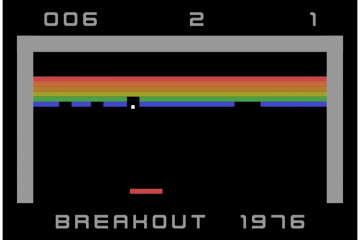What does the world look like on the other side of Covid-19?
As we head into Thanksgiving we’re getting very promising news from Moderna and Pfizer about the efficacy of their upcoming vaccines. This means more and more people are starting to wonder how 2021 will unfold and plans are starting to brew regarding going back to work, going back to school and basically what going back to normal life will look like next year.
Some believe it might take time, but everything will go back to “normal” while others are talking about adjusting to a “new normal” where masks, nods and bows will replace handshakes and hugs. Tweet this
One important area of our lives that normally takes longer to adapt but that affects our day-to-day deeply is our living space. What changes are we going to see in our homes, offices and ultimately cities and suburbs? According to a survey from Gallup sixty-two percent of employed Americans have worked from home during the crisis. When you pair that with the research that unequivocally shows that people that work from home are happier, more productive and have longer tenures, it’s undeniable that companies will have to adjust their policies to match this new reality, which ultimately translates to necessary changes in the places where we work.
According to the remote work statistics published by SmallBizGenius 40% of people feel the greatest benefit of remote work is the flexible schedule and these people won’t go back to a long commute and a Monday to Friday 9-5 schedule inside of an office building, they want the flexibility from remote work while keeping the good things about spending time with co-workers in a shared physical space.
We are however seeing two distinct points of view regarding how people see the future of work: some are already back in the office, while others like Chris Herd from Firstbase think 2020 was the beginning of the end for offices as we know them, with remote work changing the game for good.

I was recently part of a Twitter thread with Andreas Klinger, former head of remote at AngelList and now Investor via http://remotefirstcapital.com
will corporate offices ever come back? we think so, but nothing will be the same – take a look at my co-founder @myapb‘s take. @chris_herd @Jobvo @andreasklinger what do you think?#remotework https://t.co/8DuKvodfbD
— Max Faingezicht (@maxcr) November 9, 2020
His thesis is that “offices will become hubs” with several hubs across regions in addition to lots of flexible space to join as needed. We agree and we believe this will extend to more suburban areas as well, with smaller co-working spaces popping up in the suburbs for people to escape the hectic and distracting day to day at home to focus inside of a shared office, where instead of co-workers, you’ll have friends and neighbors each working for a different company but sitting next to each other. For those who can afford the space, having a dedicated area for work at home will become the norm. Desks, whiteboards and quiet space will be coveted by home buyers in 2021 as people realize that regardless of the state of the world, they will be able to work from home at least a few times a month.
What does this mean for cities? We believe cities aren’t going to go anywhere, people will stay and continue to move to cities in search of activity and the benefits of the density found in places like New York. Jerry Seinfeld put it best in his article for the NYT: So you think New York is dead? where he said:
“Because of all the real, tough New Yorkers who, unlike you, loved it and understood it, stayed and rebuilt it.”
Jerry Seinfeld
Office spaces will become more flexible, with hot desks and shared areas that are disinfected constantly. They will probably add easily rentable spaces for all-hands meetings and the needs of larger groups that will meet quarterly or yearly for strategy, social or other types of meetings. We believe people will be more cautious and pay more attention to the necessary preventive health measures, like wearing masks in the subway or washing hands often. From a policy point of view, public spaces like parks and plazas will become instrumental in reactivating cities more-so than in the past. There might even be a democratization of parks and public spaces, allowing more and more people to have access to them within a short walk from their apartments or houses.
Human beings are very resilient and we are remarkable at adapting to changing circumstances. If you had asked people a year ago about life in quarantine or the possibility of remote work becoming the norm for most of the workforce, that would have seemed insane. Yet, here we are at the end of 2020 with a new set of rules and realities and planning towards a bright future that includes remote work as a pillar of how we collaborate as a species.



0 Comments